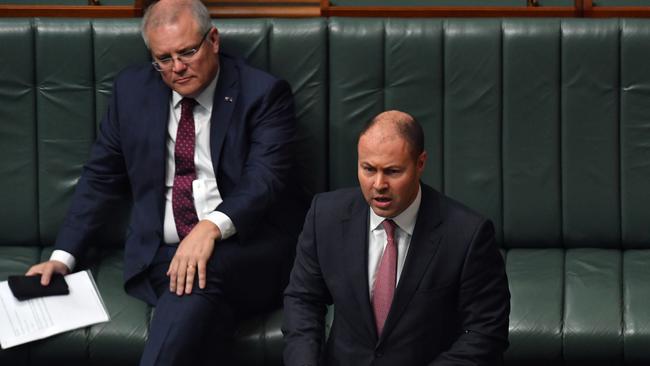
While in principle the government is on the right path, its lack of clarity as to when the JobKeeper subsidies can apply raises the real danger that down the track the Australian Taxation Office will reverse JobKeeper payments, so destroying the very businesses the government aims to save.
As I explain below, not only is greater clarity required, but an appeal body independent of the ATO is essential. This week, enterprises that have little income are required to pay employees in the next few days. Somehow they must find the money, usually by borrowing, and then hope the government and parliament will deliver the JobKeeper money next month and then later not try and take it back. They have never been so scared.
At the same time there is also considerable fear that, as things now stand, when enterprises stand down employees they will be liable for unfair dismissal.
The Fair Work Act does allow employees to be stood down “for any cause which the employer cannot be held responsible”, but those words may not apply to the current pandemic and so a whole raft of employers could be the subject of unfair dismissal claims.
And because they are so expensive to defend employers are forced to pay. The stand-down terms of the Fair Work Act must be amended to unambiguously enable enterprises to stand down employees in this situation so that they are not affected by unfair dismissals.
A great many employees are receiving salaries above the JobKeeper $1500 per fortnight and the scheme is designed so they should continue to receive their current income albeit subsidised by the government. But many of these staff members currently have little to do because the business has been decimated. Employers simply can’t afford to pay the old salaries. The law has to be changed so that their salaries can be reduced (perhaps via the stand-down provisions) to the JobKeeper $1500 payment.
As Paul Kelly pointed out the government, quite rightly, believes the only way to enable this to happen is to change the act. The ALP threatens to oppose this. The government is right and we can only hope that the ALP changes policy.
However the ALP appears to have an understanding for the need of clarity defining the 30 per cent fall in “turnover” for those businesses that have “turnover” of less than $1 billion.
Turnover is usually defined as the amount of money invoiced. Vast areas of Australian industry operate by invoicing people and enterprises for past services rendered where customers now have no hope of making the payments. The basic “turnover” measurement must be estimated trading income after genuinely estimating bad and doubtful debts. The word “income” can be used, or if turnover is retained it must be clear that it is after deducting a reasonable estimate for doubtful debts. Debt collection must be reported monthly. That’s step one.
Step two is about timing and is just as vital. The government has put out a whole series of various definitions as to what constitutes a 30 per cent fall in “turnover” (50 per cent for businesses with turnover of more than $1 billion). It was written by public servants and frankly it could mean anything and mostly hinges on approval by the tax commissioner. The business community needs a clearer definition setting out the rules for assessing the timing of the reduced income from trading so it can be defined as being down by 30/50 per cent in the period under review – say March, April, May.
Step three is setting the rules for what happens later.
The scheme is about saving businesses on a mass scale. Clear rules are essential but there will need to be some discretion. But if sole discretion is left to the Australian tax commissioner it will be a total disaster. The ATO is a huge public service organisation with deep cultural issues (akin to the ABC) and with all the best will in the world the tax commissioner will not be able to control the ATO.
If the ATO is to be used as the adjudicator not only must there be clear rules but there must be an independent body to review ATO assessments in this area. In every case the job seeker allowances are passed on to the employees and if they are later reversed by the ATO then enterprises will be destroyed.
ATO assessments have the power of law and as soon as they are made they can destroy a business so there must be a process which neuters the effect of bad JobKeeper assessments until the claim can be reviewed.
The obvious body to do this is the Small Business Tax Tribunal. But the Small Business Tax Tribunal was set up despite vigorous protests from the ATO and was achieved via regulation.
That ATO opposition has meant that the implementation has not been as good as it should have been. If the Small Business Tax Tribunal is to be used then in the next month or two it must be incorporated by legislation so its powers are clearly set out in law and not via regulation. I have watched the ATO culture in action with countless Australian enterprises and if tax officials believe their interpretations are to be reviewed by a truly independent group they are much more careful about how they calculate assessments.
The definition and appeal process for JobKeeper allowances are life and death matters for business enterprises.
I plead with the government and the opposition to make sure that the rules are clear and the appeal body is robust. That is why the next three days are so important to the nation’s future.








The long-term survival of hundreds and thousands of enterprises depends on what the government and parliament decide in the next three days.